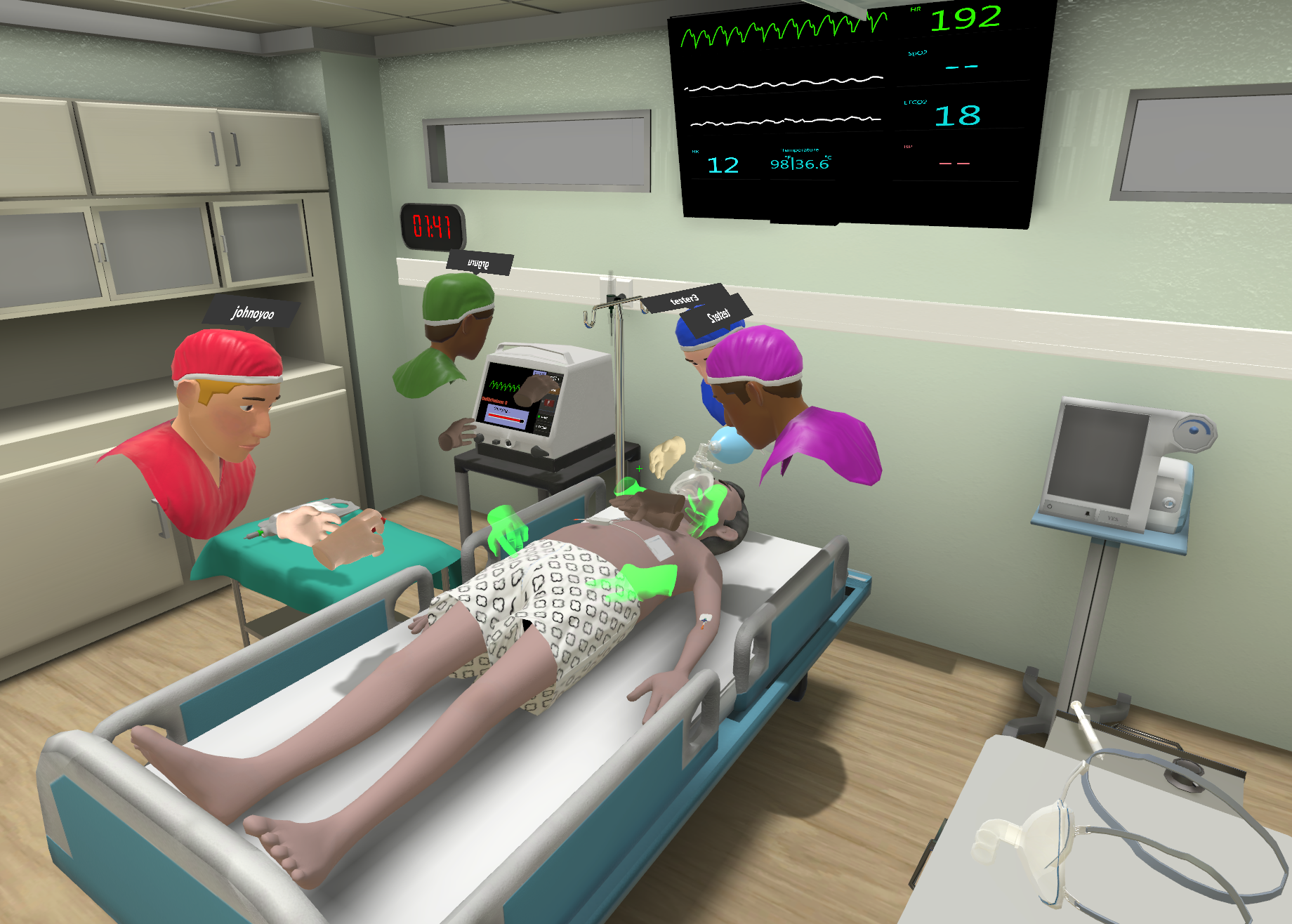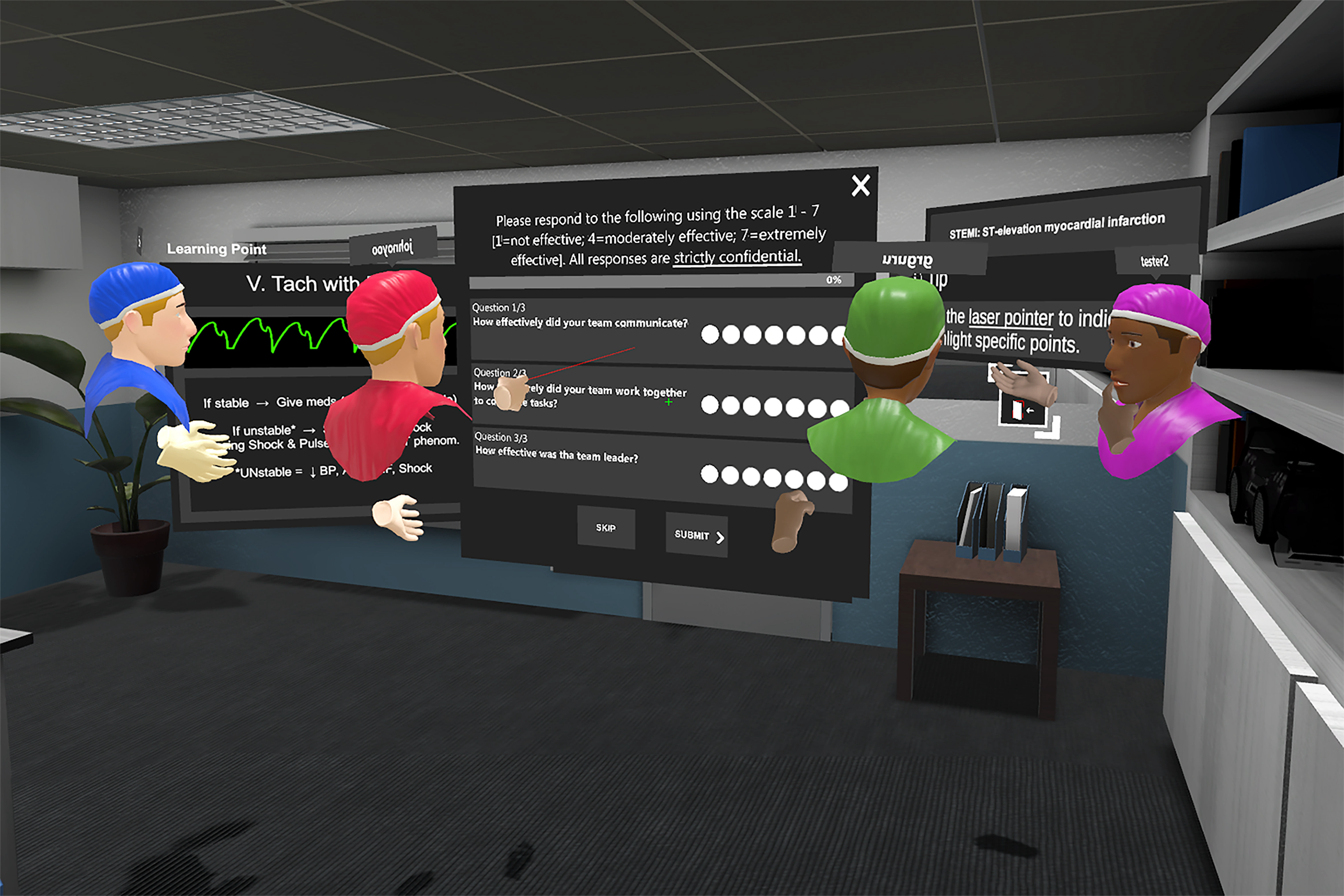m-TEAM
Advancing Emergency Medicine Trainee Skills using Multimodal Debriefing System in Simulation-based Training
The research team has developed a multi-user Virtual Reality (VR) platform for Cardiac Arrest Resuscitation. This platform is designed to create realistic time pressure and rapid workload changes for the training of healthcare professionals. However, existing healthcare simulation training, including VR and manikin–based learning, requires constant and real-time human observation. This limitation results in learners receiving feedback that is of variable quality - often generalized, inconsistent, and highly dependent on simulation instructors. With feedback being essential for learning and development, this limits the effectiveness and scalability of simulation training.


To fill this gap, this NSF-funded project aims to develop and evaluate a novel debriefing system that aims to capture and visualize multimodal data streams that evaluate learners’ cognitive (e.g., clinical decision-making) and behavioral (e.g., situational awareness, communication) processes to provide data-informed feedback focused on improving team-based care of patients who suffer sudden medical emergencies. Through this new multimodal debriefing system, instructors will be able to provide new insights and personalized feedback to clinicians during post-simulation debriefing sessions to allow for more meaningful reflection, targeted intervention, and rapid development of these complex skills. The project objectives are to: 1) conduct a human-centered design study with trainees and faculty to refine the concept of a multimodal debriefing system 2) engineer and evolve an unobtrusive multi-modal sensor-based data collection system; and 3) conduct a quasi-experimental study to evaluate the potential of this study’s debriefing system to improve clinical knowledge and teamwork skills.

TEAM: Michael Cole, MD, Associate Professor in Emergency Medicine - Adult, University of Michigan,
James Cooke, MD, Professor, Departments of Learning Health Sciences and Family Medicine, University of Michigan Medical School, Alanson Sample, PhD, Associate Professor, University of Michigan, Electrical Engineering and Computer Science Department.